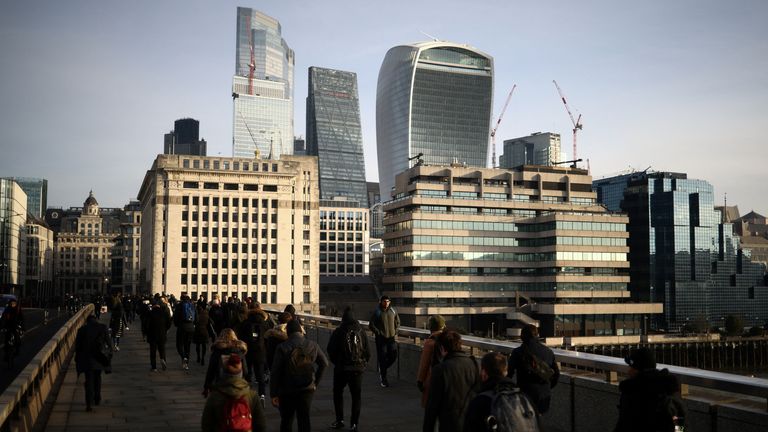By 1pm this afternoon, just a few days into the new year, FTSE 100 bosses will have earned more than the typical UK worker makes in a year, according to new estimates.
The median pay – the midpoint between the lowest and highest pay – for a FTSE 100 boss stood at £3.81m (excluding pensions) in the financial year ending in March 2023, analysis by the High Pay Centre thinktank revealed.
This amounts to approximately £1,170 per hour – assuming the bosses work 12.5 hours a day – which is 109 times the median full-time worker’s wage of £34,963, the thinktank said.
The Trades Union Congress (TUC), which represents 48 member unions, has since criticised the “obscene pay inequality”.
“While working people have been forced to suffer the longest wage squeeze in modern history, City bosses have been allowed to pocket bumper rises and bankers have been given unlimited bonuses,” Paul Nowak, TUC general secretary said.
Mr Nowak called on the government to start working with unions and employers to increase living standards and for the wealthy to be taxed fairly.
Meanwhile, other FTSE 350 executives, including senior executives and bosses outside the biggest 100 firms, will need to work a few more days – until 10 January – to overtake the median UK worker’s pay.
Read more business news:
Labelling for food imports not meeting UK welfare standards
HSBC latest lender to cut mortgage rates
‘Record’ Christmas sales for supermarkets
Top city lawyers working at firms including Clifford Chance and Allen & Overy receive an average yearly salary of £1.92m, surpassing the typical wage by 8 January, according to the analysis.
And everyone in the top 1% of full-time UK workers, earning at least £145,000, will have overtaken the amount by 29 March.
Last year, a cap on bonus payments for bankers was scrapped as part of efforts to make the UK a more attractive place to work.
This means there is no longer a limit on the amount people who work for banks or building societies in Britain can receive in annual payouts.
Please use Chrome browser for a more accessible video player

6:01
FTSE 100 turns 40: What’s next?
“Lobbyists for big business and the financial services industry spent much of 2023 arguing that top earners in Britain aren’t paid enough and that we are too concerned with gaps between the super-rich and everybody else,” Luke Hildyard, director at the High Pay Centre, said.
“They think that economic success is created by a tiny number of people at the top and that everybody else has very little to contribute.
“When politicians listen to these misguided views, it’s unsurprising that we end up with massive inequality, and stagnating living standards for the majority of the population.”
A spokesman for the government said its decision to increase the National Living Wage to £11.44 per hour has given millions in the UK a “historic pay rise”.
“In total since 2010, the annual earnings of a full-time worker on the National Living Wage will have increased by over £10,000, demonstrating how we are delivering for those in work,” a spokesperson said.
The thinktank said it used the most recent pay disclosures in FTSE 100 firms’ annual reports for the analysis, combined with government statistics showing pay levels across the UK economy.












Post comments (0)